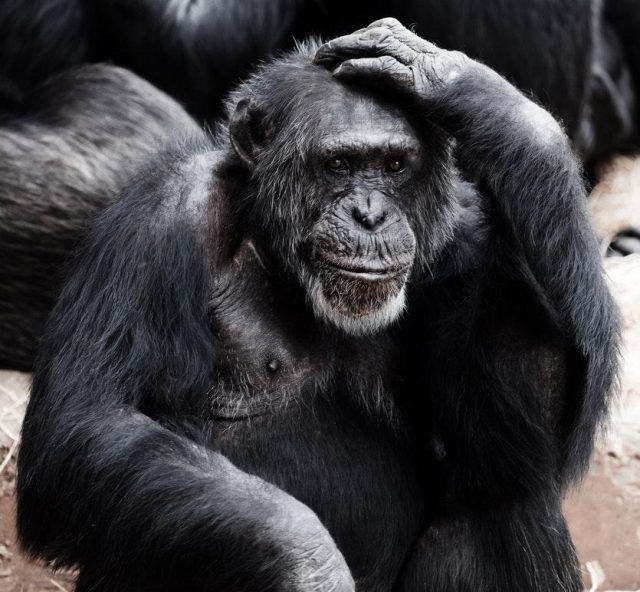Humans, the non-sleeping primates
Humans, the non-sleeping primates

As a recent mom, I can attest to the fact that at least some humans don’t quite get enough sleep, but the thing is, independently of why my baby thinks sleep is for cowards, in a new article 1 researchers Charles Nunn and David Charles, have shown by comparing sleep patterns of 30 species of primates that while most species get between 9-12 hours of shut-eye a day, we humans average a meagre 7 hours (what i would do for 7 hours of sleep…). Not only do humans sleep less than their primate relatives but also sleep less than predicted when a series of biological and lifestyle factors is taken into account (9.55 versus 7 hours/day). Now the big question is why?
But before, let’s see how they got to these results. To get a measure of sleeping times of primates, they used electrode recordings from animals in captivity, and they followed the literature on links on behaviour/biology to sleeping patterns, finding for instance that animals with a daily lifestyle sleep less on average than nocturnal species, same can be said for those that live in small groups while travelling or those in open spaces where predators can lie in wait.
Now, based on all the above the estimation was of almost 10 hours a day (9.55) of sleep for humans. However, real-life measurements say we are at least 2 hours short of that. There can be many reasons behind this reality. The authors propose a couple based on evolutionary grounds: first, when we left the safety of the tree tops and started walking the plains the danger of predators made it riskier to sleep, therefore we could not allow ourselves so much sleepy time; second, we humans enjoy too much learning new skills and sharing each other’s company to waste our time sleeping (I believe my son would strongly agree with the concept). Be it as it is, with shortened sleep times, and given the importance of REM (rapid-eye-movement sleep phase) for learning and memory fixation, we developed an enriched REM-sleep.
Interesting as this result is, some think that there are way too many more primates to test before considering this a set conclusion (there is to be about 300 primate species, of which only 10% were tested in this study). Be it as it may, it has entertained a bit my (mostly) human sleepless nights.
References
- Charles Nunn & David Charles (2018) Sleep in a comparative context: Investigating how human sleep differs from sleep in other primates American Journal of Physical Anthropology doi: 10.1002/ajpa.23427 ↩
1 comment
[…] Bestelako primateek baino gutxiago lo egiteaz gain, beharko luketen baino gutxiago egiten dute lo gizakiek, bizi estiloari dagozkion hainbat faktore kontuan izanik. Zergatik? Rosa García-Verdugok Humans, the non-sleeping primates […]